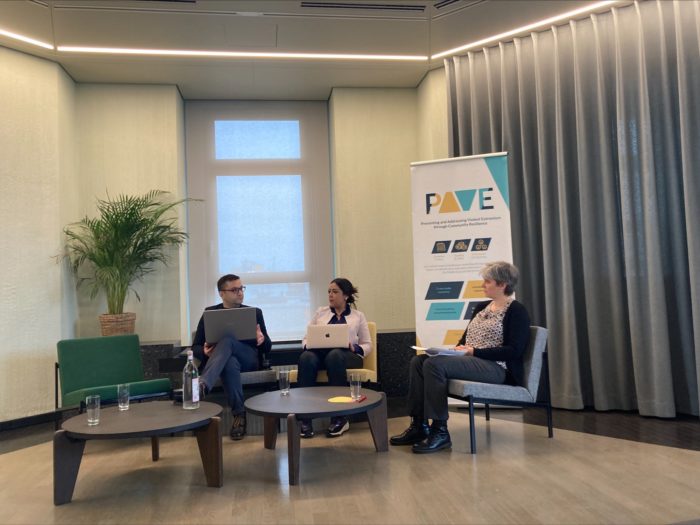Bledar Feta participated in a Policy Roundtable organized by Berghof Foundation in Berlin, Germany. This event was organized in the context of the Horizon 2020 PAVE Project (2020-2023) which investigated vulnerability and resilience factors towards violent extremism in local communities in seven countries across the Western Balkans and MENA region. The aim of the Berlin Policy Roundtable was to bring together insights and experiences from PVE in the European Neighbourhood as well as in Western Europe order to extract lessons learned and best practices for multi-agency cooperation in order to inform future programming on P/CVE.
Bledar Feta, as speaker of the first panel, presented the positive experiences of multi-stakeholder cooperation identified through the PAVE research in the Western Balkans as well as the blockages that hinder the cooperation among the different actors of region’s multi-stakeholder mechanisms. According to Feta, “the problem in the Western Balkans is not the lack of multi-actor mechanisms since all countries in the region have adopted a multi-stakeholder P/CVE approach with the involvement of different actors from both the local and the central level, including first line practitioners. The main problem is the lack of well-coordinated response among the actors involved in the process. Feta supports that “the single most powerful explanation to account for this lack of coordination, which is one of the main factors that hinders community resilience, is the lack of consensus among the different actors on how to deal with this sensitive issue”. He further argues that “the alignment of all actor’s stances and intentions with the community needs is the key for increasing the efficiency of these multi-actor partnerships”.




